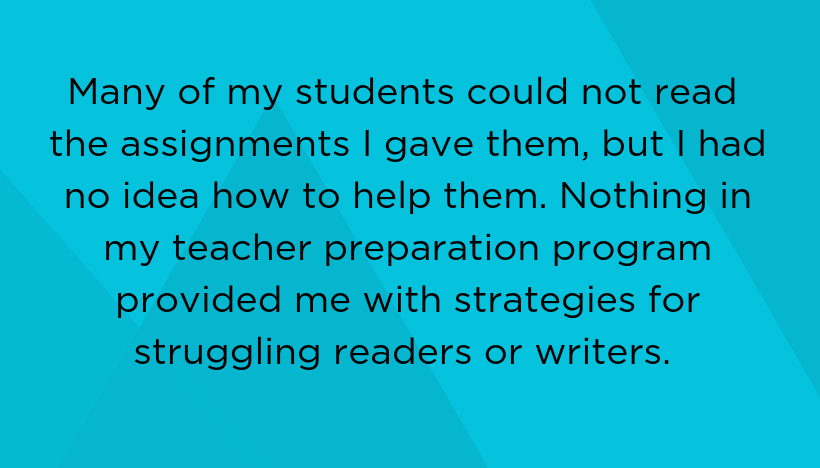This post was written by NCTE member Kristen Bruck, a member of the current cohort of participants in the Emerging Leaders Fellowship Program of the Conference on English Leadership (CEL).
I knew from a young age that I wanted to be a teacher, but if you had told me when I was a teenager that I would one day be a high school English teacher, I wouldn’t have believed you. While I had always loved to read and learn, I didn’t really care for school—which is exactly why I wanted to become a teacher. I loved working with kids, and I wanted to make my classroom a place where they could enjoy learning, want to read, and use their voices to make the world a better place.
When I look back at these reasons, it actually makes perfect sense that I ended up teaching high school English, but when I started on my journey as a teacher, majoring in English didn’t even cross my mind. As a first-year education major, I had to observe both an elementary and a secondary classroom for a few weeks. I went into that semester sure that I wanted to teach in an elementary school, but I left with the realization that secondary was the place for me. I chose Social Studies as my subject area because I had recently taken an American History class and had a teacher who taught history as people’s stories, not just dates and places to memorize. I knew I wanted to be that kind of teacher—one who connected history and our world to each individual student.
I graduated and was lucky enough to start my first permanent position the following year, teaching seventh-grade World Geography and eighth-grade American History. I quickly learned that there was so much more to teaching kids than just presenting material and following up with assessments.
Many of my students could not read the assignments I gave them, but I had no idea how to help them. Nothing in my teacher preparation program provided me with strategies for struggling readers or writers.
So after one year, I went back to school to get my Master’s Degree as a Reading Specialist. I didn’t intend to leave Social Studies, I just wanted the expertise to better help the students in my classroom. But Life happens . . . and a semester prior to finishing my Master’s, my son was born. Deciding that full-time teaching alongside full-time motherhood was not for me, I resigned from my public school position and found an adjunct position as a reading professor at a local community college.
Suddenly and somewhat unexpectedly, I was a reading teacher.
And what I found was that teaching reading and teaching social studies are really not that different. We were still discussing history, geography, sociology and the like, but doing it along with strategies for comprehension and communication—and this time, I knew how to help the students comprehend the content. After a few years, thinking of how much I enjoyed public school teaching, I took the Secondary English Praxis Exam, and by 2016, fifteen years after starting as a social studies teacher, I had officially made the switch to the English department in a public school, where I’ve been ever since.
Life holds surprises for us sometimes. My journey has taught me several things, like how important it is for teachers to continue to learn and grow. While I never would have predicted that I’d end up teaching 10th-grade English, it is truly the perfect position for me as a teacher.
It’s made me realize how important it is for all teachers to look for additional professional learning, to be ready for the surprises and opportunities in our futures. In addition, I’ve learned that whether we teach English, Science, Social Studies, or Math, we all need to know how to help students use literacy skills in our subject areas.
We are all learning and growing, and we are ALL literacy teachers.
Kristen Bruck teaches tenth-grade English at the Lehigh Valley Charter High School for the Arts in Bethlehem, Pennyslvania and is a member of the current cohort of participants in the Emerging Leaders Fellowship Program of the Conference on English Leadership (CEL). She previously taught seventh- and eighth-grade social studies in the Pennridge School District in Perkasie, Pennsylvania and reading support classes at Northampton Community College in Bethlehem, Pennsylvania.

